Carol Kobliski, Nelson House Cree Nation
Dave Swanson, Norway House Cree Nation
Derek Kornelsen, Rootstalk Resources
Diana Traverse, Lake St. Martin
Jarvis Brownlie, University of Manitoba
Kerry Saner-Harvey, Interchurch Council on Hydropower
Leslie Dysart, Community Association of South Indian Lake
Martina Saunders, York Factory First Nation
Melanie O’Gorman, University of Winnipeg
Myrle Ballard, University of Manitoba
Peter Kulchyski, University of Manitoba
Ramona Neckoway, University College of the North
Roland Robinson, Pimicikamak Cree Nation
Steph McLachlan, University of Manitoba
Warren Cariou, University of Manitoba

Carol Kobliski has lived with her family in Nisichawayasihk (Nelson House) her whole life. Carol is a survivor of the Churchill River Diversion project which has heavily impacted her family. ” We lived on an island, like 5 other families……as a child, little did I know what happened growing but as I got older, I was once again impacted by Manitoba Hydro, as my community was settling with Manitoba Hydro with the Northern Flood Agreements and then being impacted again with the Wuskwatim dam, that my community became 33% partners with Manitoba Hydro. I remember a quote my grandfather said to some elders back in the days….he said to them don’t ever trust “Manitoba Hydro”, they are going to destroy our land and way of living…..I was only 12 when I heard that, not knowing what he meant….but now I’m seeing what he meant….”

Les Dysart is a life long resident of South Indian Lake who grew up on the shores of the lake. He is a hunter, Commercial fisher and trapper. Les is also the CEO of the Community Association of SIL who signed a compensation agreement with MB Hydro and Manitoba in relation to the CRD. SIL was the third largest Lake Whitefish Fishery in North America and was once prosperous. He has witnessed first hand the devastation of Hydro development and a long time advocate for MB Hydro to operate responsibly to the people they impact.
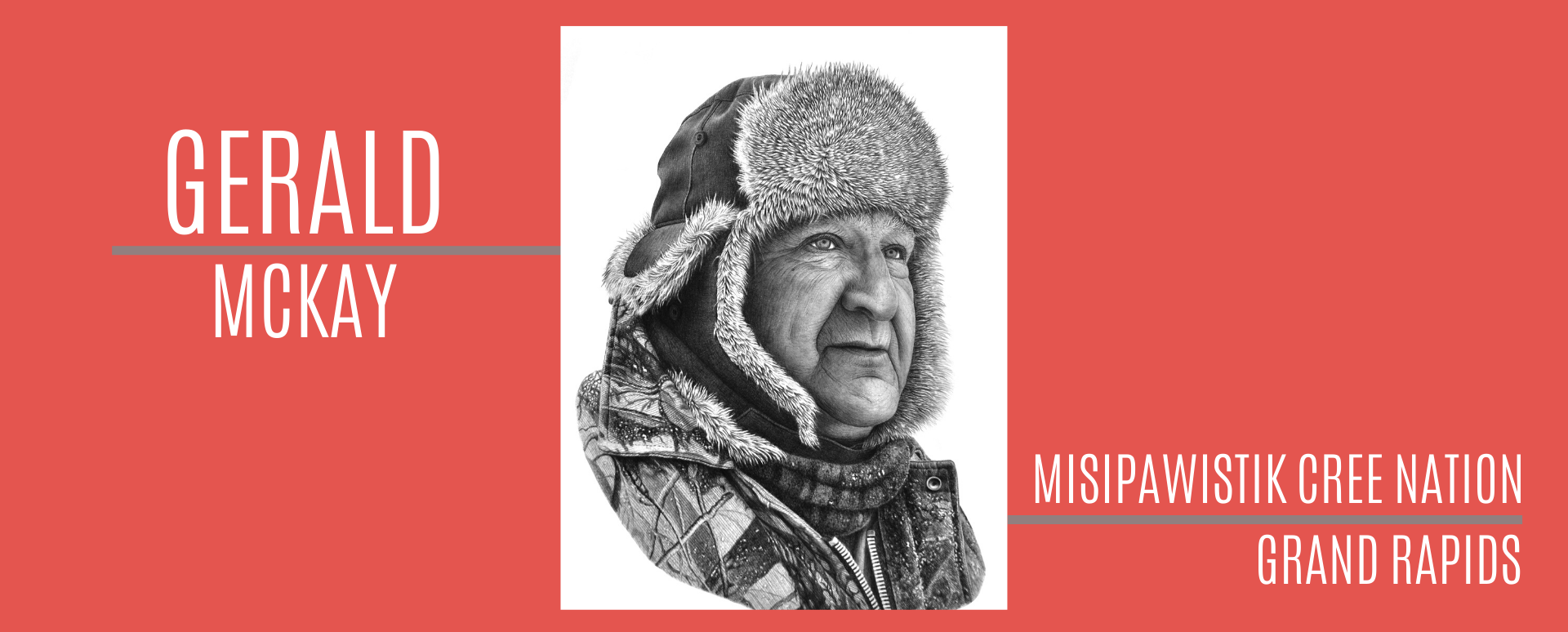
Gerald McKay was born and raised in Grand Rapids during the construction of the dam. He is a commercial fisherman on Lake Winnipeg and has fished for about thirty years. Gerald graduated from Red River College in the Business Administration program, and is also a certified Project Manager.
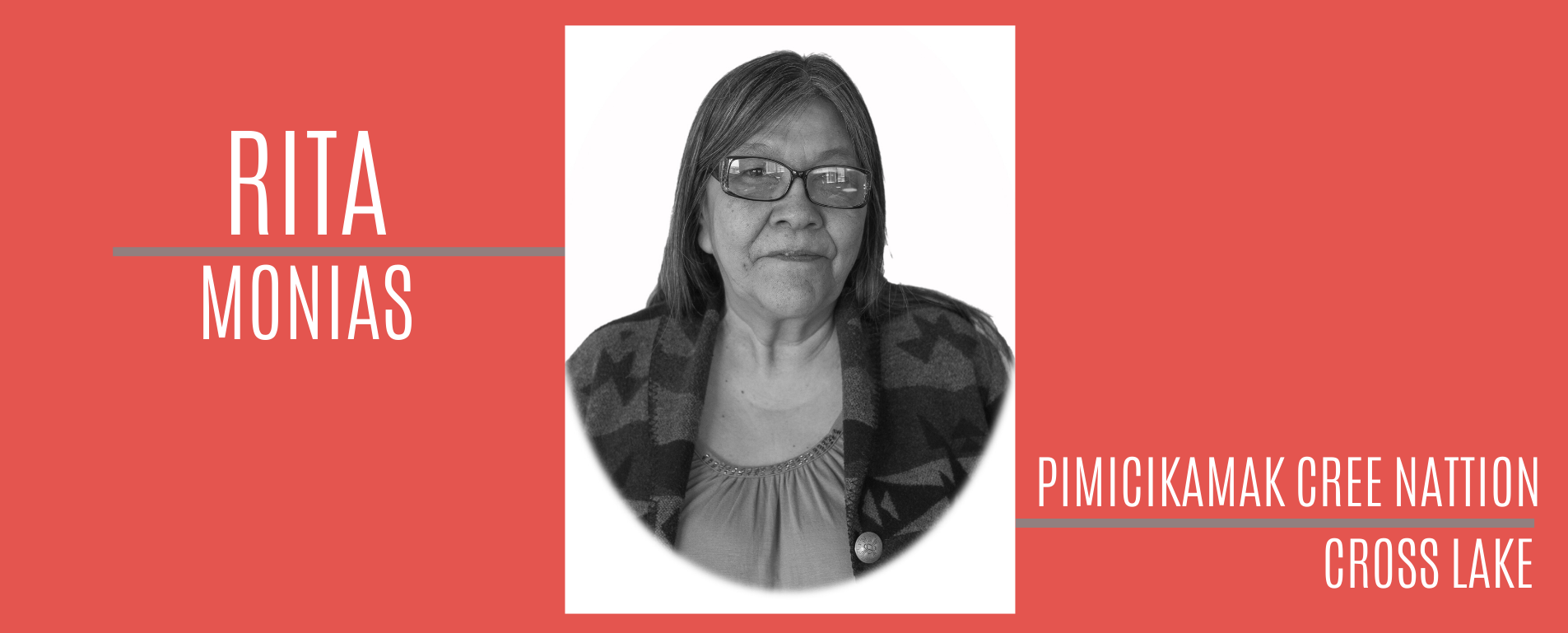
Rita Frances Monias is from Pimicikamak Cross Lake, and has a Bachelor of Arts, Bachelor of General Studies, and a Counselling Certificate. Rooting back from 1993, Rita has been very passionate and dedicated towards environmental justice and human rights. Rita Monias was inspired by her father, who was also supported by her mother, who fully encouraged her to pursue going to education to learn more about how the government and corporations were impacting the environment and rights of the community.
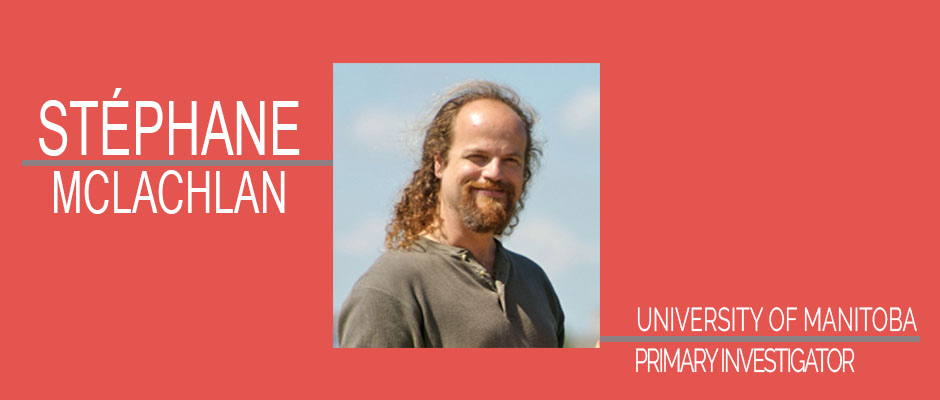
Stéphane is a Full Professor and coordinator of the Environmental Conservation Lab at the University of Manitoba. He joined the Department of Environment and Geography in 2003, and has been working at the University of Manitoba since 1999. Before that he completed a PhD at York University and did a post-doctoral fellowship at the University of Northern British Columbia.
Stéphane’s overall goal as an academic is to engage in research that at once makes contributions to the academic literature and benefits the livelihoods and environments of Aboriginal and rural communities and other stakeholders; to be an engaging, progressive, and responsible teacher; and to be of meaningful service to the university and society as a whole.
Currently his research interests include: risk and adaptation, alternative food systems, food justice, environmental justice, environmental health, participatory video, participatory research, conservation and restoration, and traditional knowledge.
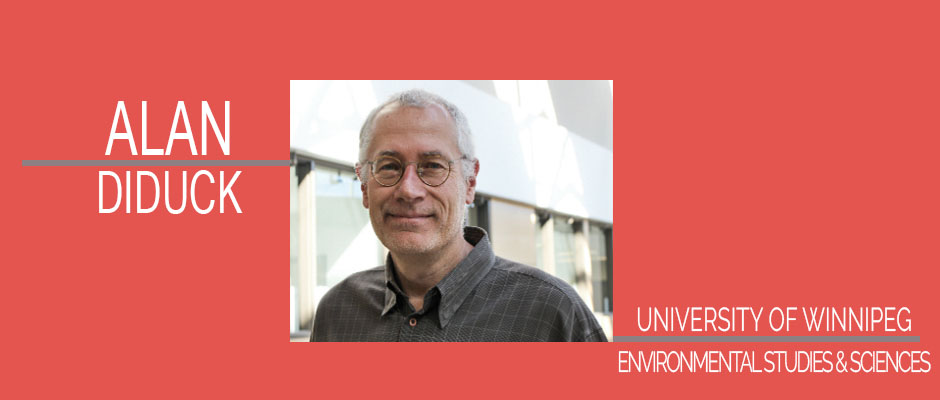
Dr. Alan P. Diduck is a Professor in the Department of Environmental Studies and Sciences. As a professor, he works to ensure students have a better understanding of the relationships among natural and human systems. He carries out these values in his research as well, encompassing environmental governance and the learning implications of involvement, and consequences for social sustainability. Diduck’s work ensures involvement from individuals to communities, allowing for all voices to be heard. Dr Alan P. Diduck is currently a co-investigator for the Wa Ni Ska Tan Hydro Alliance, and is working to provide insight through his experience as a lawyer, as well as his extensive knowledge in natural resources and the environment.
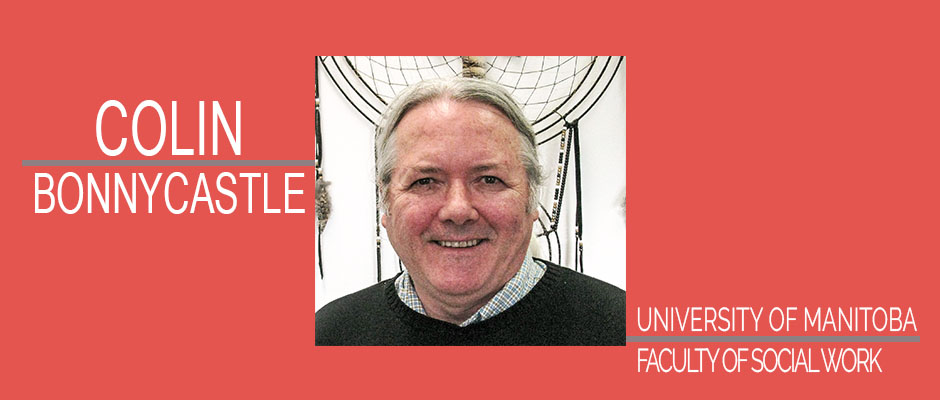
Colin Bonnycastle is the director of the University of Manitoba’s Northern Social Work Program. His time as an associate professor has most recently focused on yearly homelessness counts in Thompson, Manitoba. These counts have served as building blocks for the community to move forward and develop solutions to reduce homelessness. Colin has also been known for his valuable experiential learning processes, allowing students to interact with communities and learn outside of the classroom. For example, his work involving photo voice generated into a community based research project with students in a First Nation regarding water and sewage issues. Colin is currently the principle investigator on a qualitative study entitled “Reestablishing their lives: The issues of affordable housing for women and their children escaping violent relationships in Northern Manitoba”.
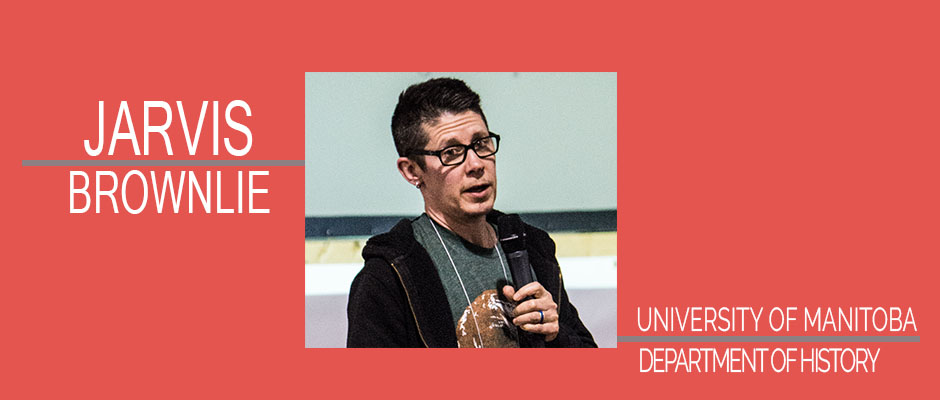
Dr. Jarvis Brownlie is a professor of History at the University of Manitoba. Dr. Brownlie researches in the fields of Canadian Aboriginal and oral history, with particular attention to colonization, race, and gender. Dr. Brownlie has published widely on issues such as Crown-First Nation relations, the Indian agent system, Aboriginal rights and treaties, oral history, and Aboriginal perspectives on history. He has also conducted extensive research on treaties and Aboriginal rights for both First Nations and governments. His work with the Wa Ni Ska Tan alliance currently focuses on archiving and documentation, identifying and collecting relevant material that sheds light on Hydro impacts, conducting an overview of materials that already exist, including previous oral history interviews, and making as much information as possible available to community members and researchers. The archiving and documentation project is designed to help prevent duplication of work, to facilitate the work of researchers and community members, and to help address the need for access to information and information sharing among Hydro-affected communities.

Dr. Jerry Buckland, a Canadian Mennonite University Professor of International Development Studies (based at the University of Winnipeg), does research in the field of financial resilience and inclusion including First Nations and Indigenous Communities. One area he is interested in is the relationship between financial resilience and natural resource management, including hydro development projects. Some of his research has found that First Nations have had little inclusion in hydroelectric development projects, including both financial consultation and the co-management of natural resources. Other countries like Australia are facing similar conflicts to Canada when it comes to financial involvement in large resource development projects. In cooperation with the College of Business at RMIT University in Melbourne, Jerry Buckland’s research has drawn comparisons regarding financial resilience and of Indigenous engagement in hydro development in Canada to natural resource planning in Australia.
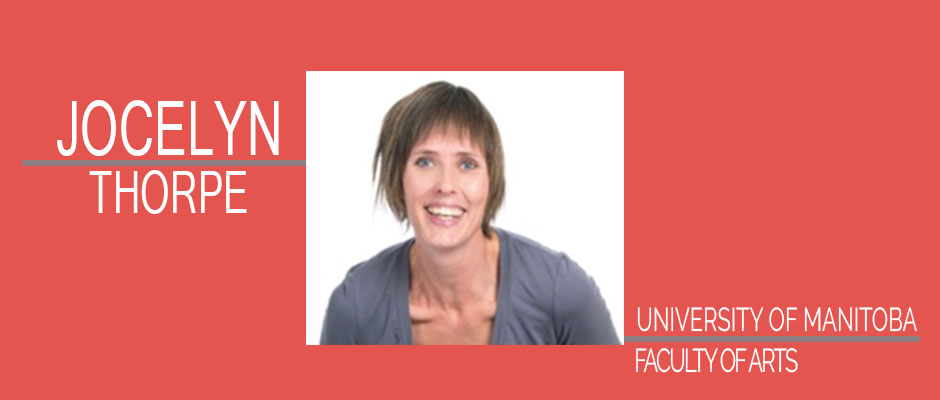
Dr. Jocelyn Thorpe’s research draws from critical race, feminist, and environmental studies scholarship to examine the history and legacies of, as well as challenges to, colonialism in the Canadian context. She seeks to understand how past discourses and relationships of power lead to and naturalize present-day social and environmental inequities, and to open up possibilities for more just relationships among humans and between humans and the non-human world in which we live.
Her current major project, “Lost Encounters in the ‘New-Found-Land’,” is supported by a five-year SSHRC Insight Grant (2013-2018). It explores the history of present-day relationships among Indigenous and non-Indigenous Newfoundlanders and the territory they have come to share, with the goals of: contributing a detailed analysis of a little-known history; advancing scholarly understandings of the workings of colonialism, including its relationship with the non-human world; and contributing to decolonizing relationships among humans and between humans and the rest of the world. Together with Newfoundland Mi’kmaq artist Joanna Barker, she is currently working on the oral history component of the research.
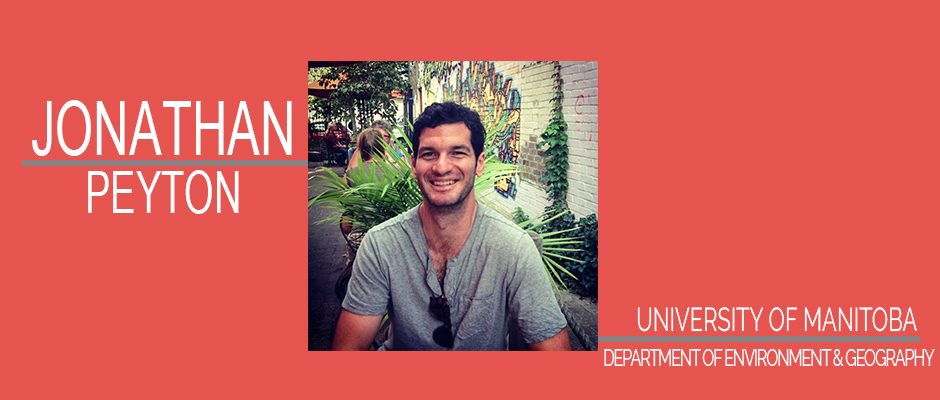
Dr. Jonathan Peyton is an assistant professor in the Department of Environment and Geography at the University of Manitoba. His work develops a cultural and historical approach to problems of resource conflict and development in northern North America and Western Canada. He is the author of Unbuilt Environments: Legacies of Post-War Development and Extractive Economies in Northwest BC (UBC Press, 2017). His research and publications focus on the historical geographies of resource extraction, the social and environmental legacies of megaproject development, environmental politics and knowledge, as well as on the cultural representation of Canadian resources on film. Current research is focused on northern energy, metals and mineral development in subarctic North America and on Prairie Resource Cultures.
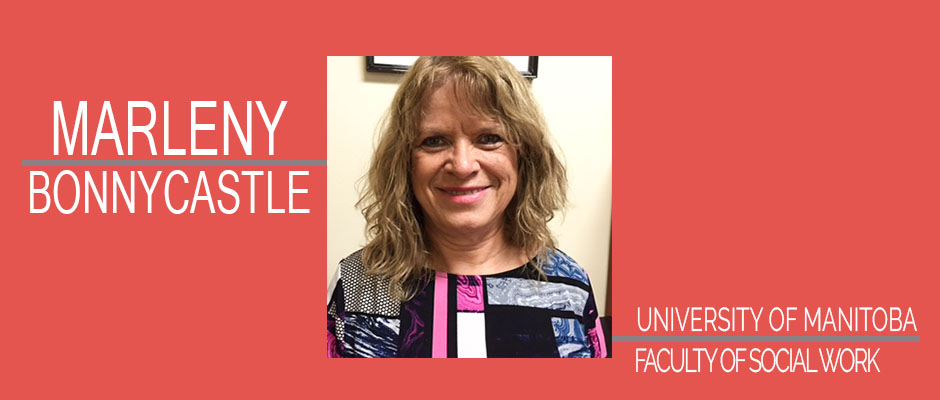
Dr. Marleny Bonnycastle is an assistant professor at the University of Manitoba’s Faculty of Social Work at the Inner City Social Work Program, Manitoba. She worked for five years at the Northern Social Work Program in Thompson, MB. She spends a great deal of her time working with students from communities in northern Manitoba. Her research is focused on university community engagement, homelessness, violence against women, gender and women, and refugees. Dr. Bonnycastle uses Community Based Participatory Research through which she has built strong community relationships in her work in northern Manitoba, and was recently awarded Researcher of the Week by the Centre for Human Rights Research. She hopes her research will promote social change, and encourages her students to do the same.
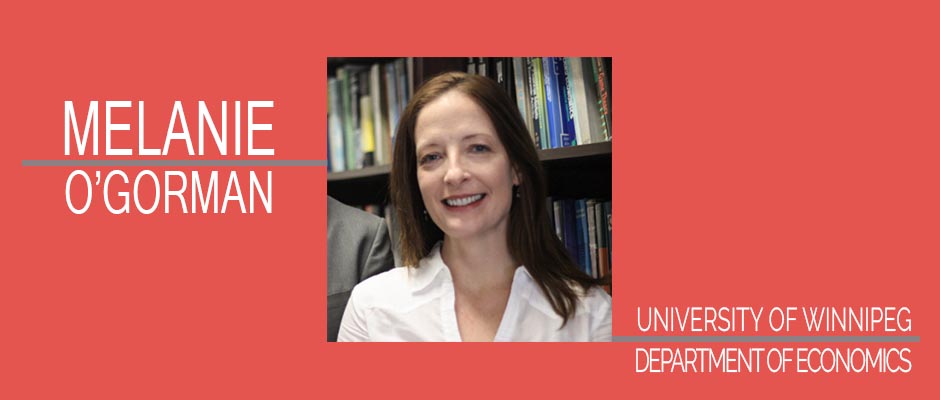
Dr. Melanie O’Gorman is an Associate Professor in the University of Winnipeg’s Department of Economics. Her current work with the Wa Ni Ska Tan Alliance is two-fold: 1) an analysis of potential revenue-sharing arrangements between Manitoba Hydro and hydro-affected First Nations, and 2) an analysis of the economic losses stemming from hydroelectric development around South Indian Lake. The first project focuses on Manitoba Hydro’s revenue-sharing partnerships and the degree to which they address socio-economic well-being in hydro-affected First Nations. The intention of these revenue-sharing partnerships is to alleviate the negative impacts caused by hydroelectric development, however few affected First Nations have been included in the development of these partnerships, making a new approach to benefit-sharing necessary. The second project is in partnership with the Community Association of South Indian Lake (CASIL) and it will involve quantifying the economy-wide losses resulting from the collapse of the South Indian Lake fishery.
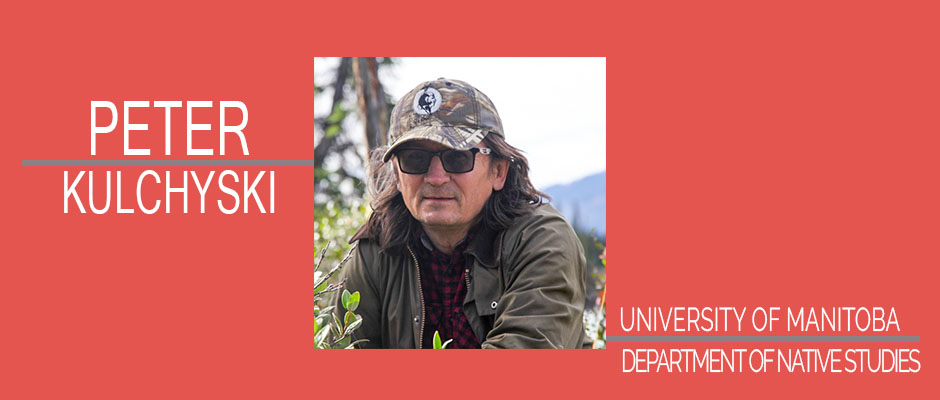
Peter Kulchyski is a professor at the University of Manitoba in the Department of Native Studies. He has teaches courses on Indigenous politics and law, and on critical social theory. His research focuses on Aboriginal rights, political development, land claims, history and Aboriginal cultural politics. Kulchyski has worked as an intervener in the Clean Environment Commission hearings on the Wuskwatim and Keeyask Generating Stations in northern Manitoba. Kulchyski has been actively coordinating tours of hydro affected communities since 2013, and has been a valuable member of Wa Ni Ska Tan’s steering committee since 2016. Kulchyski has written or edited many books and scholarly articles, including Aboriginal Rights Are Not Human Rights (2013), Like the Sound of a Drum (2005) and in 2018 has a new book, Report on an Inquiry into an Injustice.
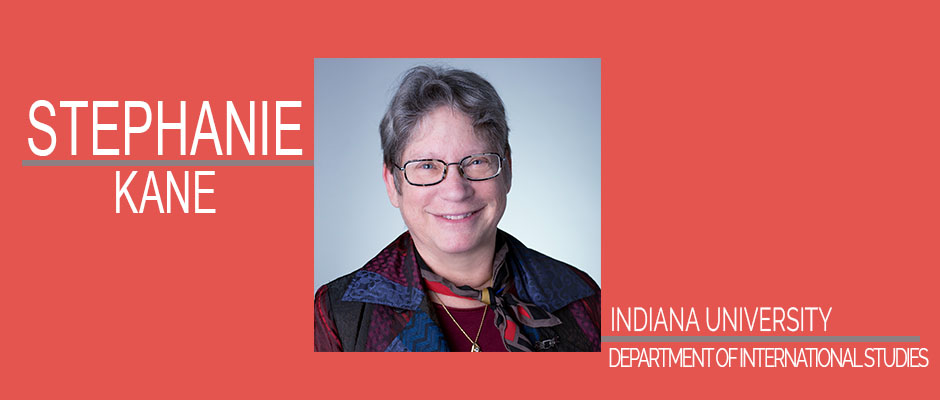
Dr. Stephanie C. Kane, a Professor of International Studies at Indiana University, researches the political ecology of water. From port cities of Brazil, Argentina and Singapore to the Canadian Arctic and subarctic, Kane’s ethnography explores the way river and coastal city inhabitants embed themselves into the planetary crust and negotiate water disasters (flooding, pollution, dispossession). Her non-fiction creative writing brings geoscience, engineering, law, social life and art into conversation to highlight social justice and environmental justice. New multi-media work of 2016/17 include an audio edition of Where Rivers Meet the Sea and a Sage video talk on “Unconventional Methods…” filmed in the SGIS TV studio. Earlier books include The Phantom Gringo Boat, AIDS Alibis, and, co-edited with Phil Parnell, Crime’s Power.
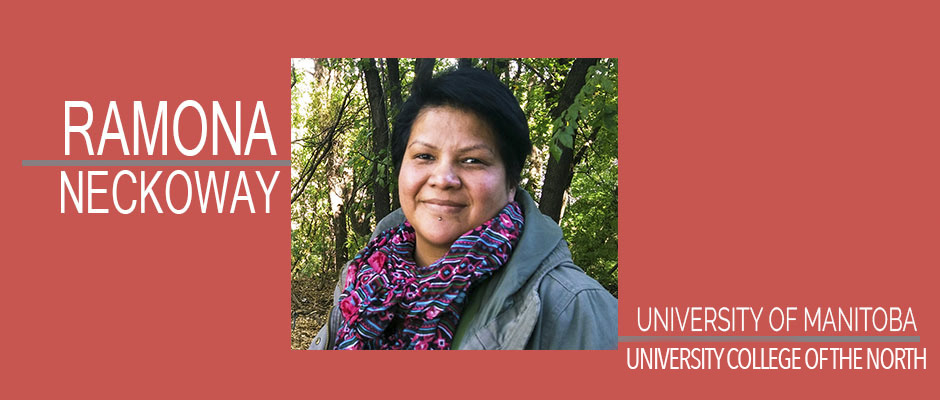
Dr. Ramona Neckoway is an Assistant Professor at University College of the North and currently serves as the Chair of its Aboriginal Northern Studies Program. As a member of a Hydro-affected community in northern Manitoba (Nisichawayasihk Cree Nation), her research has been shaped by the experiences and encounters of her family and her community.
For more than a decade, Ramona has listened to local perspectives as they relate to the many implications of hydropower. Drawing upon these perspectives and experiences, together with reflecting on broader implications of energy production on Cree homelands in northern Manitoba, she endeavors to create critical spaces that include Indigenous voices, histories, and perspectives thus aiming to open up possibilities for alternative narratives where hydropower and energy production in the north is concerned.
Dr. Neckoway is also the co-lead on a NSERC-funded project designed to offer opportunities for Indigenous youth to learn about science in a culturally relevant and meaningful manner. Shaped by both Indigenous customs and practices and Western scientific traditions, this cross-cultural initiative locates science education through land-based camps that are grounded in and draw from culturally rich Indigenous worldviews led by Indigenous Elders and other local knowledge keepers.